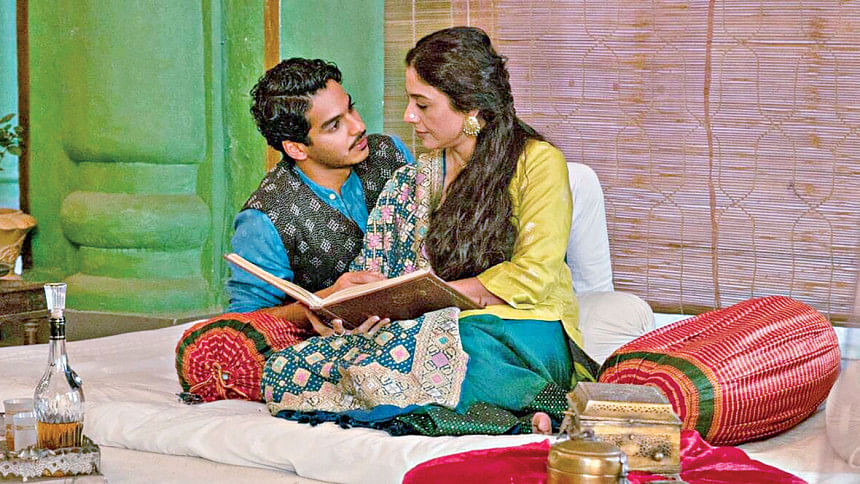The not-so suitable adaptation of A Suitable Boy

Vikram Seth's monumental gigantic 1,488 pages galloping novel, A Suitable Boy finally got its adaptation produced by the BBC and is now streaming on Netflix. Written by Andrew Davis and directed by the famed maestro, Mira Nair, who has produced iconic India and diaspora-centric films like The Namesake,Monsoon Wedding, and Mississippi Masala, the film brings to us an all South Asian cast that we seldom see with English being the film's medium of language with snippets of Urdu and Hindu thrown in between.
The film, set in a fictional North Indian town, showcases the modern Indian republic in its initial years of independence as it is thrust into the valleys of secularism and Hindu majoritarianism, tradition and modernity, elections and dictatorships, land reforms and class struggles, and the moulding of the idea of India. All this happens in the backdrop as Lata, a young Indian girl, frantically pursues suitors on her mother's request as well as navigating her own pathways of love across religious, class, and linguistic lines. Associated with Lata's eccentric family are the lives of numerous others, all hailing from different parts of India, woven intricately into the fabric of mini-series. Interlinked and interchanged as the story unfolds, the series consists of 6 episodes.
Concurrently with Lata's mother search for a desirable suitor for her daughter, we also see a beguiling and rather provocating affair of an ageing Muslim courtesan played by the legendary actress, Tabu and the hotheaded son of a local Congress minister, Maan Kapoor played by Ishaan Khatter. The film plays out as the nascent republic tries to extinguish religious sectarianism boiled up by the building of a temple on the site of a mosque, the ongoing land reform movements, the persistence of the Anglophile elites of India, and the notion of marriage lingering in the heads of Lata. Introducing a brand new fresh cast, the film's most notable actors are Tabu and Ram Kapoor.
In many ways, the story is relatable with melodramatic Bollywood dialogue without significant character development for many of the characters. While the film does make it a great point to introduce the various nuances, complexities, and paradoxes associated with life in India as multiple fault lines are exposed, it does little to give space and breadth to the characters. Lata's relationships with a Muslim, an Anglicized Bengali poet, and a self-made man from the masses, are not explored in-depth as one might have. Given the vastness and scope offered by Vikram's beguiling character development, it would be perhaps better to allow the mini-series to be perhaps more than 6 episodes, as after watching it, the viewer is left dizzy with multiple questions narrowing into how what, and why.
The plus points for the film is the film's introduction to India as an independent nation and the various discrepancies the young republic is compelled to face, some of which it is forced to be indifferent to. In many ways, the series strikes modern parallels and perhaps, that is the reason why Mira Nair's mini-series must still be given a watch, it will force you to think and ponder on the greatness and the idea of the world's largest democracy.

 For all latest news, follow The Daily Star's Google News channel.
For all latest news, follow The Daily Star's Google News channel. 



Comments